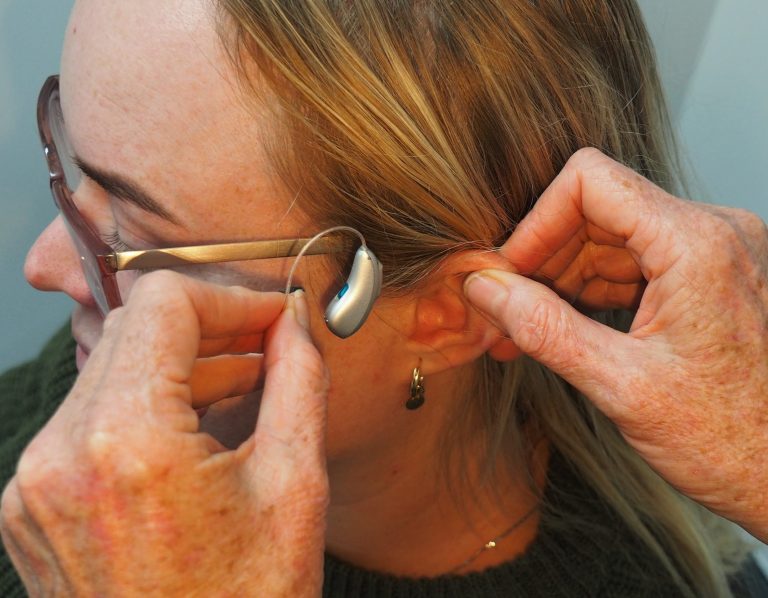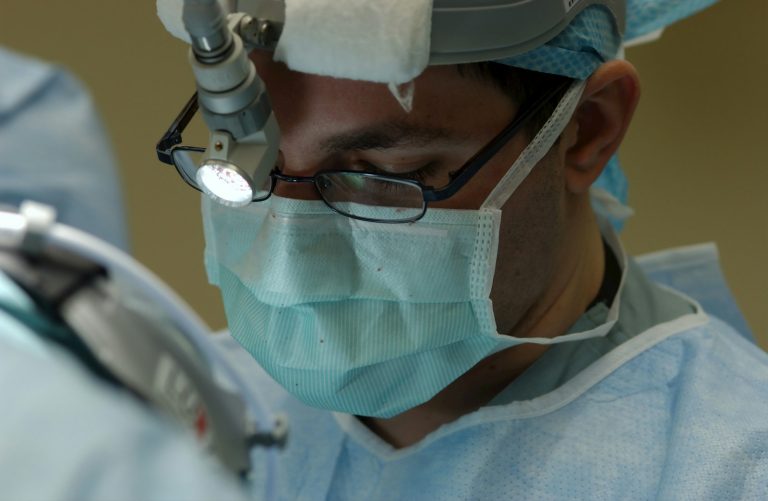Over the Counter & Direct to Consumer Hearing Aids is contributed Diane Fox, Owner – All About Hearing
Published in the Fall/Winter, 2022 Edition of Vibrant Senior Options Resource Guide.

There are many ways to purchase or receive hearing aids these days, from your Audiologist or Hearing Specialist, Direct-To-Consumer (DTC) and now, the newest way, Over-The-Counter from your pharmacy or grocery store. Here are the pros and cons of each.
Direct to Consumer (DTC) Hearing Aids
These are online suppliers of hearing devices that sell to those who want to save money and forego in-office testing. Most suppliers have an abbreviated evaluation and the aids are sent to you ‘pre-programmed’ by their Specialist.
- Pros: Prices are at times lower than through Audiological offices and there are ‘on-call Specialists’. Many aids come with an app for adjustments for fine-tuning.
- Cons: Online testing can vary by significant amounts which invariably lead to inaccurate programming. Fit is invariably sacrificed, as you may receive a one-size-fits-all result with no accommodations for ear size and individuality. Pricing can range from $200 – $1000, or more for each hearing aid/amplifier.
Over-The-Counter (OTC) Hearing Aids
These are hearing aids that are available through your local Pharmacy. They are sold for a mild to moderate hearing loss, and are again a one-size-fits-most solution for cost-conscious shoppers.
- Pros: There are no testing requirements and for all of the people who have long felt that there should be a more cost-effective hearing solution, these might be for you.
- Cons: There are no testing requirements. There are no red-flag warnings. It’s pretty much a one-size fits all device with a limited fitting range but apps are generally available to adjust your aids with.
Audiology & Hearing Clinics
These destinations offer the most up-to-date testing and verification methods including air & bone conduction, discrimination & Speech-in-Noise testing. There is education regarding wear and care of your instruments as well as instruction with Apps and remote care and 30 to 60-day risk free trials. We also offer follow-ups for continued care.
- Pros: Caring professionals are educated in the types of hearing loss, red-flag warnings and the ways that hearing care integrates to over-all health care. Individualized care plan for your needs and expectations. We fit your devices in a prescriptive method with Real-Ear Verifications. We also handle insurance claims.
- Cons: Cost may be higher initially than other methods of acquisition, but satisfaction and wear time are also increased substantially compared to self-fit methods.
Go to the Experts
In an environment of autonomy and self-reliance, there are many areas where we can take a more hands on approach to our daily lives. But whether it’s your hearing specialist, optician, dentist, electrician or plumber, sometimes it pays to go to the experts. Just saying…
Diane Fox, BC-HIS, COHC, Owner
All About Hearing
360-707-5500
Vibrant Senior Options Home Page





















